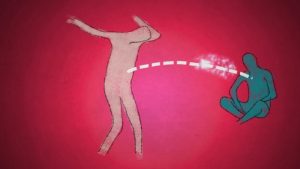Dance/Movement Therapy and Trauma
Dance/Movement Therapy and Trauma
COURSE DESCRIPTION:
Pre-requisite: 30 hrs. of DMT Theory and Practice/or permission of instructor
Trauma significantly impacts our physical, emotional, and psychological identity as well as our interpersonal relationships. This experiential and didactic course will explore dance/movement therapy and somatic therapy-based approaches for working with clients who have experienced trauma. Specific areas of focus will include 1) neurological perspectives on the impact of trauma; 2) DMT and Somatic techniques for working with various types of trauma; 3) stages of the trauma healing process; and 3) considerations when working with groups and individuals from a multicultural perspective. Class sessions will include lectures, discussion, experiential exercises, video observations and leadership practice. Diagnostic issues and contraindications for embodied trauma work will also be briefly addressed.
COURSE OBJECTIVES:
In this course, the student will:
- Learn DMT and Somatic frameworks and interventions for working with trauma;
- Study the neurophysiological impact of trauma on the body, mind, emotions and interpersonal relationships;
- Learn and practice specific techniques and interventions for working with acute/Type 1 (single event) trauma and complex/Type 2 (multiple/cumulative/developmental) trauma; generational trauma will also be briefly addressed;
- Explore multi-cultural considerations when working with trauma;
- Discuss self-care strategies for practitioners working with trauma clients;
PREPARATION:
Prior to the start of the course, please acquire all texts (available online or from the instructor) and have them read before the intensive weekend. Use your reflective journal to begin noting questions, discussion points and interesting information that come up in the readings (see more about the journal below).
NOTE: During this course, if you become triggered or activated, you are encouraged to practice good self-care strategies. Experiencing various types of physiological responses to trauma is normal. You are encouraged to talk to the instructor if you have any concerns or support needs, so that you can also continue to learn. (preferably before and after class or during a break). Your journal is also a great place to discuss things you notice about your own responses to trauma.
Full format: 1.5 credits/22.5 hours (Intensive format)
Short format: 6 hours (April 22-24, 2022)
Instructor: Barbara Nordstrom-Loeb LMFT, BC-DMT, SEP, CMA






